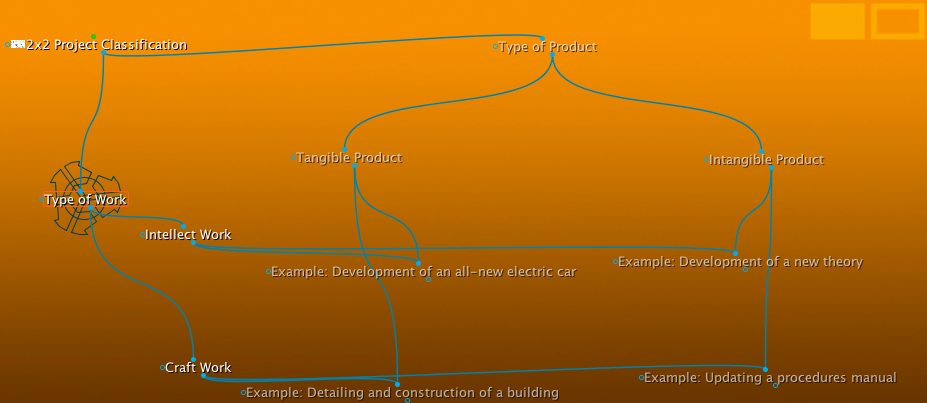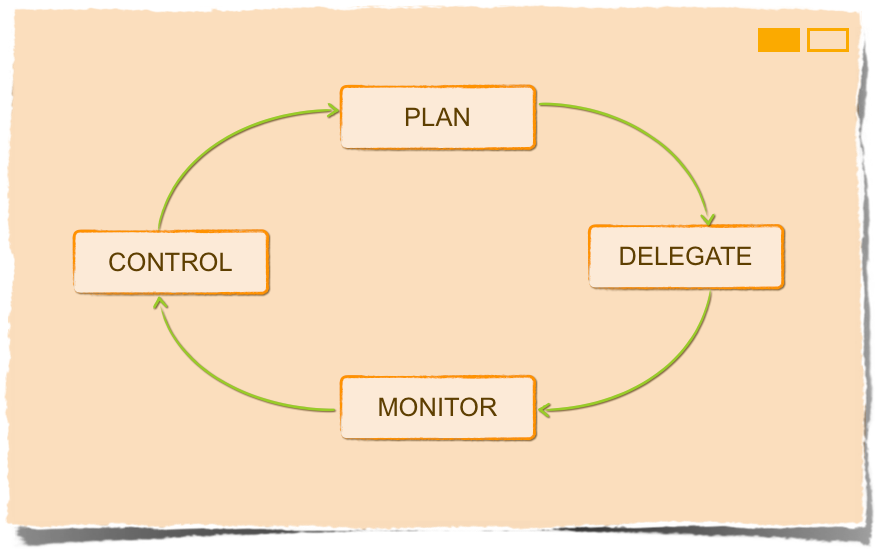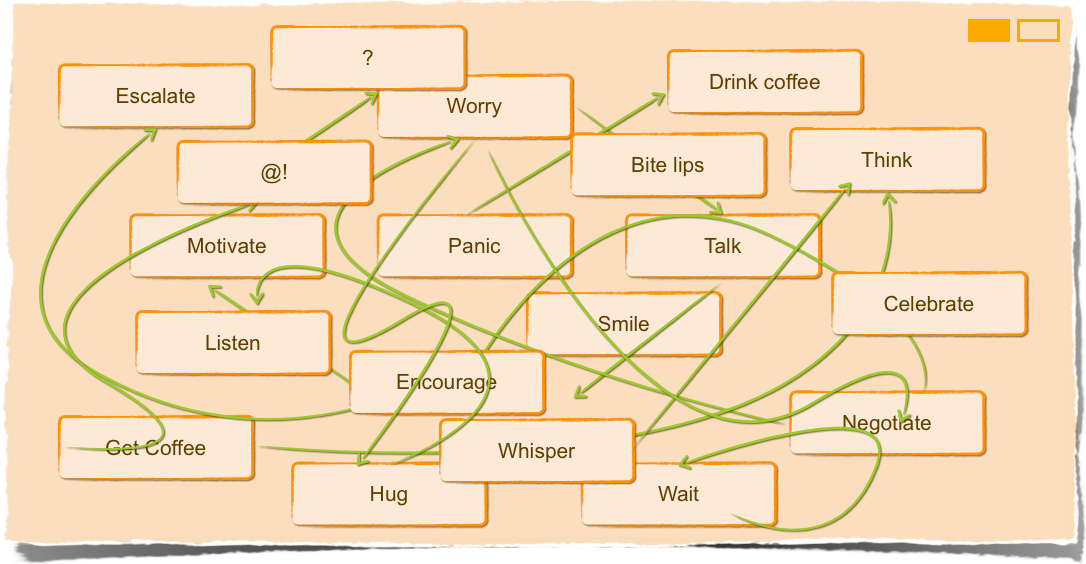What is the importance of different project types?
Now that we have established that there are different types of projects as well ways of identifying those, we need to answer the question what the importance of knowing the project type is.
As we have seen from the different attributes that determine the type of project, the main reason to know/determine the project type is that each requires a different leadership and management style.
Ralf Müller and Rodney Turner in a 2006 study in the International Journal of Project Management conclude that:
Without going too much into detail this conclusion makes a lot of sense as we can all appreciate that different situations require different approaches.
Looking at some of the project types they conclude as well:
- On medium complexity projects, emotional resilience and communication are important;
- On re-positioning projects, motivation is important, whereas on renewal projects, self-awareness and communication are important;
- On fixed price contracts, sensitivity and communication are important, whereas on re-measurement contracts influence and communication are Important;
- On home-based, multi-cultural projects, motivation and managing resources are important and strategic perspective detrimental.
So what does this mean?
It means a few things, first of all, something Müller and Turner do not address and that is, from the project manager's perspective, that you need to know what your strengths and weaknesses are. This may sound self evident and somewhat corny but it is very important because we as project managers have a tendency not to (be able) to say no and to take on any project that comes our way.
Secondly, now from the perspective of the Project Manager's manager, make sure to select the right project for the right project manager.
Lastly, from an project management office and organizational development perspective, when developing project managers and project management capabilities make sure to adopt the curricula to fit the expected project types and to address leadership (style) development.
Sources:
- Müller, R., & Turner, J. (2007). Matching the project manager’s leadership style to project type. International Journal Of Project Management, 25(1), 21-32. doi:10.1016/j.ijproman.2006.04.003
What types of projects are there?
There are different ways of classifying projects. We will briefly discuss the following:
2x2 Project Classification
An often used way of classifying projects is by looking at the the type of work that needs to be done and the type of product that needs to be produced by the project.
- Type of work
- Craft
- Intellect
- Type of Product
- Tangible
- Intangible
Each combination of these identifies a specific type of project. An example of each can be seen below:
Diagram created with TheBrain
Project Intent
We can distinguish 5 project intents1:
- Business implementation projects produce working processes
- New Nursing Care Model
- eCommerce business line
- Construction projects produce artefacts
- House
- Software
- Procurement project produce business relationships
- Request for Proposal and subsequent contracts
- New Vendor relationship
- Reengineering projects produce change
- Restructured billing department
- Cruiseship refit
- Research projects produce knowledge
- Clinical Study for drug approval
- Real project bodies of knowledge
It may not always easy to classify each project as project products may overlap.
UPC Attributes
An other often used way of classifying projects is by looking at certain attributes and scoring them on a scale. The following attributes are most often used:
- Uncertainty
- Pace
- Complexity
Other Attributes
The following are attributes that can be used to classify projects as well.
- Culture
- Life Cylce
- Strategic Importance
In one of the following articles we will ask, and answer, the question what the importance is of classifying projects.
Sources:
1 Typology by Richard Veryard.
What does a Project Manager do?
In its most simple form a project manager does the following:
In essence the traditional Deming cycle of Plan-Do-Check-Act with a few name changes.
Key to the changes is that a project manager manages the project but does not do (most of) the project work himself.
In subsequent chapters we will delve deeper into each of these and provide more insight in what to do, how to do it, when to do it and most importantly why (or why not) to do it.
In all fairness we need to point out that the real things a project manager does can be be depicted as seen below:
We like to point out that the IPMA Competence Baseline (ICB®) provides a good overview of what a project manager is supposed to be able to do.
What is a Project Manager
One who manages projects is a project manager! Is that true? In other words, anyone who manages a project or projects is a project manager? As per the defnition, yes. A project manager manages projects. However, one can and should argue that, the simple fact one is called a project manager or the simple fact that one manages projects does not make one a project manager!

Let us explain this.
First of all we have to consider whether the project is indeed a project. See What is a project? If whatever it is one manages does not fit the definiton of a project one can not be considered a project manager.
Secondly, the activities one does need to constitute "managing". See What is Project Management? In other words, if whatever it is one does cannot be considered "managing or taking care of or or handling", one can not be considered a project manager.
The next problem we encounter with this is that the term/profession 'project manager' is not a protected/regulated profession such as medical doctor or engineer, nurse or Colonel. Nor does it appear in many national and international job classifications. Anyone can call herself a project manager. Subsequently a lot of people do. A lot of them would not pass the simple litmus tests above. This (self) proclaiming and naming problem will not be solved (does it need solving?) unless there is a need to do so. So far that does not seem the case.
Good efforts are being made worldwide in defining what a project manager is or should be. Some examples are the IPMA Competence Baseline (ICB®) and the GAPPS Project Manager Standard. Both PMI's A Guide to the Project Management Body of Knowledge (PMBOK®) and ISO's ISO 21500:2012 Guidance on project management do mention the role of the project manager but not in depth.
For all purposes and intent we will stick with the simple definition of a Project Manager being someone who manages a project. In subsequent chapters we will explore a bit more what makes project manager differ from other managers and types of skills, competences and attitudes a project manager may want to posses and/or develop.
What is Project Management?
Topics: Project management | Definition
Project Management is the management of projects, would be the simple answer. The next question to ask is what makes project management different from other forms of management. The most obvious 'other' management to look at would be the day-to-day or line management of an organizations. As we saw in the article what is a project? the key characteristic of a project is the temporary nature and the the fact that projects create change. Most line management is based on steady state. Keeping things the way they are.
Before we delve a bit deeper into what the some of the key elements of project management are, we need to point out that all types of management have one thing in common, and that is the word management. So what is management? The etymological origin of management (the act of managing) from the verb to manage + ment. Manage is based on Latin, Manus - Hand and subsequently Italian, Maneggiare - to handle. The ~ment suffix is added to the verb stem indicating "the result of". Therefor the meaning of management is "the result of handling (something)". The original something was a horse but from the 16th century on also objects/subjects or businesses were included.
In today's context, management is the act of making objects/subjects do things they otherwise would not do by themselves. In one of the next chapters we will discuss in a bit more details some of the common elements of all types of management.
Since projects are the subject of project management it is easy to understand that some of the key elements of project management are dealing with change, focus on a defined (or not) end result. Both the end and result are important here. The end because projects are time-bound and result since projects are focused on creating something new, something unique. Unique does not necessarily mean 'never done before' but more unique in terms of the specific result.
The final, important element is uncertainty. Since projects create change, something new, in a defined context of time, cost and quality they inevitably deal with uncertainty.





